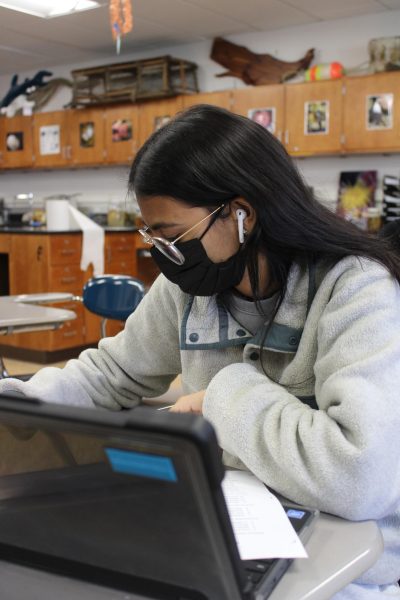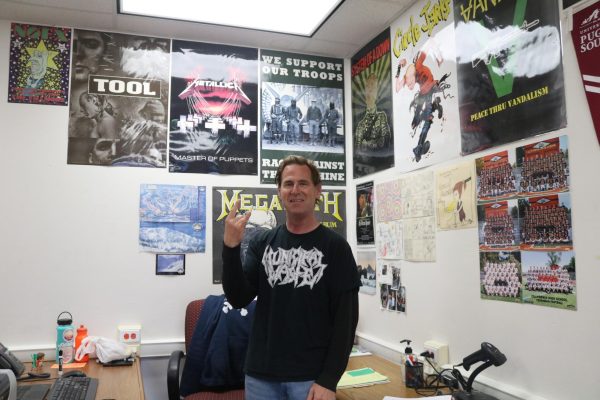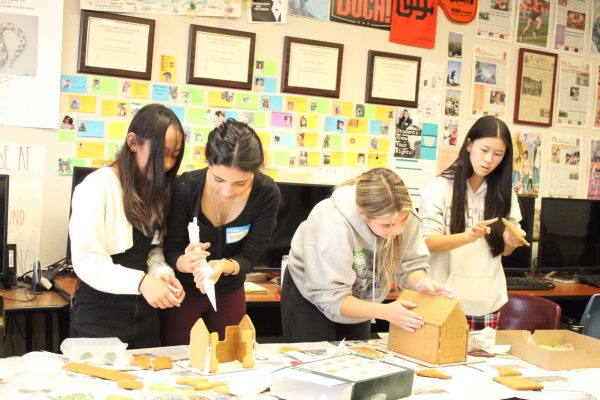Poor mental health is an ongoing issue the school is addressing
Cal High is making an effort to destigmatize the subject of mental health by spreading awareness among high schoolers.
For some teenagers, mental issues such as anxiety, depression and stress consume their daily lives, making it difficult to focus on school work and social activities.
Other students even go as far as eliminating daily necessities, such as sleep or family interaction, in order to cope with these issues.
Many students avoid discussing the topic of mental health, believing such a heavy subject should be kept silent.
According to the National Alliance of Mental Illness, the best way to become aware of mental illnesses is to get involved and talk about them in a safe environment.
On campus, counselors offer a safe place for students to address their concerns, whether it is through self-referral or a reference from their peers.
Over the school year, counselors have noticed that a lot of students confront the issue of stress or anxiety because of the overtaxing of AP classes.
“My best advice is to not let your life be taken over by the fear of not being able to succeed,” said Susie Fitch, a Cal High counselor for 18 years.
Besides affecting a person’s health, an ongoing unstable mental condition can lead to serious mental issues such as depression.
“People struggling are profoundly benefitted by having one significant person to go to,” said Fitch. “This provides a safe place for the individual.”
Fitch has also noticed that students need more room to literally relax and breathe.
“Students aren’t listening to their bodies these days,” Fitch said. “If you can stop and listen to what your body is telling you, you can get through.”
Freshman health classes have addressed the basics of mental health, skimming the surface of issues such as anxiety, depression, the grieving process, and eating disorders.
In-class activities and group discussions are part of the curriculum, allowing for students to voice their opinions and ask questions.
“I just try to create a classroom that’s comfortable for kids and let them know that there are resources on campus and people to talk to if they’re in need,” said Joe Sussman, a Cal health teacher for 21 years.
But many students are not satisfied with the material provided in these classes.
“Personally, I remember learning a lot about nutrition and sexual education, but I don’t really remember learning a lot regarding mental health in class,” said senior Gabby Bishoff.
Other students believe that Cal’s health classes don’t spend enough time going over mental health.
“I think the health classes were informative and educational to an extent,” said junior Anusha Manapragada, “but mental health was taken a little lightly, emphasizing the already present stigma.”
To supplement the curriculum in freshman health classes, other teachers incorporate mental health into their classes.
In AP Psychology, students learn all of the neurobiology and neuroanatomy behind mental illness, as well as understanding what separates sadness from actual depression.
Students also study what certain disorders look like and learn about real life case studies. In addition to this, they take personal class discussions into account.
“My main objectives are for the students to understand the disorder and also to destigmatize the mental illness and show that there is recovery on the other end,” said Brandon Quick, an AP Psychology teacher for 14 years.
Despite this, some students believe the way that mental health is taught at Cal could be altered to create a more emotional approach.
“I think it’s good that the health classes are talking about mental health, but people’s minds and opinions change with time and the curriculum shouldn’t be the same as it was in previous decades,” sophomore Rebecca Alves said. “There should also be a more heart-to-heart approach rather than scientific evidence.”
But Quick believes Cal does the best it can toward spreading awareness, given the resources it has.
“There’s always room for improvement,” said Quick, “ but I think we do a really good job providing services and support to kids who need it.”









